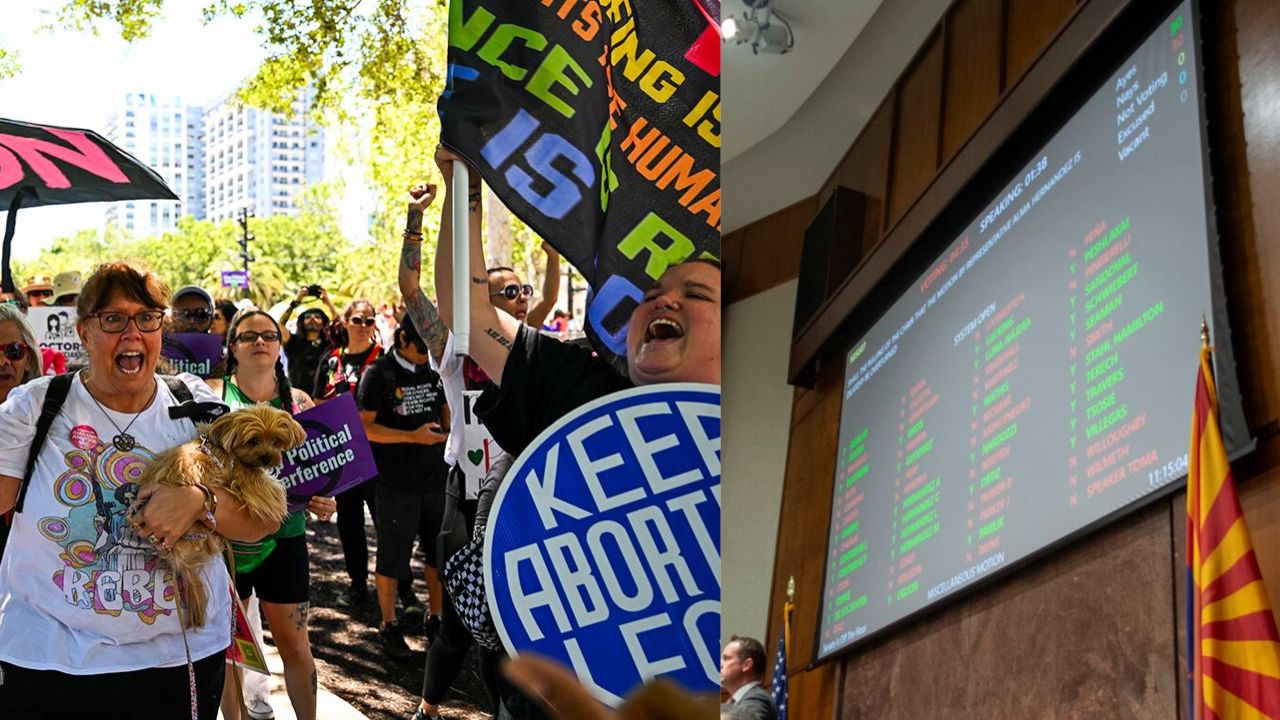In the ongoing battle over Arizona’s pre-Roe abortion ban, the state Senate took a significant step towards repeal, while House Republicans continued to obstruct similar efforts, leaving the fate of the 1864 law uncertain. The narrow margins of 30-30 in the House and 16-14 in the Senate highlight the tensions reignited by the Arizona Supreme Court’s recent reinstatement of the pre-Roe ban.
Three Republicans from competitive districts joined Democrats in supporting repeal, shifting the focus back to the House, where the Republican speaker pledged to block further progress.
According to Senate Republicans’ communications director, Kim Quintero, the earliest the Senate could hold a final vote on the bill is in two weeks due to legislative procedures. Both chambers are meeting only once a week, with reconvening scheduled for next Wednesday.
House Speaker Ben Toma stated his intent to obstruct the bill’s passage in his chamber if the Senate approves it, mirroring previous actions by most Republicans.
Overriding the speaker’s blockage would require significant support, a move many Republicans have been hesitant to make.
Even if the bill passes, its implementation would be delayed until 90 days after the session ends, with no fixed date for session conclusion. Last session, which extended until July, serves as a precedent. Democratic Attorney General Kris Mayes confirmed that the earliest the 1864 ban could be repealed is June 8, leaving room for its potential enforcement for an indefinite period.

Intriguing Dynamics: Rep. Matt Gress (R-Phoenix), the sole House Republican publicly backing repeal, anticipates additional support if the bill reaches a vote, with only one more House Republican needed to secure passage. However, uncertainty lingers regarding whether Republicans would go against Toma’s obstruction, even if they support repeal.
Rep. Tim Dunn (R-Yuma), among the two other House Republicans under pressure to support repeal, expressed personal support for repeal but remained non-committal on overriding Toma’s blockage, indicating ongoing discussions within the caucus.
Reading between the lines: Despite assurances from Democratic Gov. Katie Hobbs and Attorney General Mayes that the ban won’t be enforced, providers are unlikely to risk offering illegal abortions. Mayes emphasized her determination to prevent the law from taking effect and discussed with the California attorney general the option of emergency licenses for Arizona providers.
What’s on the horizon: An upcoming citizen initiative aims to embed abortion rights in the state Constitution, expected to appear on the November ballot. Dubbed the “Arizona Abortion Access Act,” the initiative proposes expanding abortion access up to fetal viability, typically around 24 weeks, with exceptions for maternal life and health.
Meanwhile, House Republicans are considering alternative ballot measures. Rep. Alex Kolodin (R-Scottsdale) announced plans on the House floor to introduce a Republican-backed proposal, providing voters with additional options.

